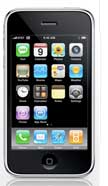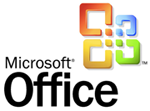 Greetings to you from Malta…
Greetings to you from Malta…
Please, Apple, approve iPhone SlingPlayer.
TwitPic glitches frustrate, alarm users.
Should Apple fear Zune? Maybe.
Windows Mobile Zune? Also maybe.
Acer’s ultraslim, fairly cheap notebook.
 Greetings to you from Malta…
Greetings to you from Malta…
Please, Apple, approve iPhone SlingPlayer.
TwitPic glitches frustrate, alarm users.
Should Apple fear Zune? Maybe.
Windows Mobile Zune? Also maybe.
Acer’s ultraslim, fairly cheap notebook.
 There are plenty of benefits that come with owning an iPhone, but there are also some crosses that one must bear. One is the phone’s lack of support for video capture, which means that the nifty Qik video lifestreaming app only works if you’ve jailbroken your phone. (Or if Qik has given you access to the service via Apple’s approved “ad-hoc” access, which–full disclosure–it has for me.)
There are plenty of benefits that come with owning an iPhone, but there are also some crosses that one must bear. One is the phone’s lack of support for video capture, which means that the nifty Qik video lifestreaming app only works if you’ve jailbroken your phone. (Or if Qik has given you access to the service via Apple’s approved “ad-hoc” access, which–full disclosure–it has for me.)
Another iPhone limitation: Assuming you’ve got an AT&T one rather than a pricey unlocked unit, it’s a costly phone to take on international trips. I’m on my way to Malta at the moment and have signed up temporarily for AT&T’s discounted global roaming rates and 20MB of international data access, but it’s still more expensive than buying the cheap local SIM I could pick up if my phone were unlocked. (AT&T has obligingly unlocked other phones I’ve bought from it in the past, but as far as I know, it won’t free iPhones.)
So I’m slightly jealous of a new Qik service called Qik Roam, which is designed to control the cost of using the service and other Internet access, as well as making calls, while you’re trotting the globe. Offered in partnership with a company called Cubic Telecom, Qik Roam gives you a SIM you can use for discounted calls and data in over 160 countries. It makes perfect sense for data-intensive tasks like video streaming. And I can’t use it with my locked phone.
Out of curiosity, I used Qik Roam’s online calculator to do the math on whether the service would have saved me money in Malta versus AT&T’s rates–a moot point, but an interesting one. I discovered, first of all, that the extra $3.99 I’m paying this month for discounted international roaming is money down the drain: Calls from Malta appear to be $2.29 a minute whether you’ve signed up for discounted roaming or not. But Qik’s rate for calls from Malta back to the U.S. is a much more affordable $1.22.
As for data, assuming I’m understanding the rates properly–never a given with wireless phone costs–Qik’s rate of $2.49 per 100KB is much, much cheaper than what I’d owe AT&T if I hadn’t signed up for 20MB of international data. But it’s about what I am paying via AT&T, and AT&T might be cheaper if I purchased a large enough chunk of data. The cost comparison presumably varies meaningfully depending on who your carrier is and where you’re traveling to.
Another thing I just learned, maybe: The AT&T page for Malta seems to suggest that it may not have 3G data at all. I’ll let you know once I get there.
One lesson about international travel with phones that can’t be repeated enough: Don’t take your phone out of the country without making some provision for avoiding paying undiscounted roaming data rates. One day I’ll tell you about the $900 bill I got when I surfed up a storm via my phone in an English village, and why I narrowly escaped having to pay most of it…
 If you thought the recording industry would suffer for pushing higher prices on iTunes and other download services, you’d be wrong.
If you thought the recording industry would suffer for pushing higher prices on iTunes and other download services, you’d be wrong.
Billboard reports weaker sales for iTunes tracks whose price changed from 99 cents to $1.29 a week ago, but overall revenues for the Top 100 still rose by roughly 10 percent.
iTunes adopted a “variable pricing” structure on April 7 as part of a new agreement with record labels. While most tracks still cost 99 cents, some popular songs became 30 cents more expensive, while a selection of random classics were priced at 69 cents. Forget about storming off to another service; Amazon, Napster, Lala, Rhapsody and Wal-Mart. The deal also marked the end of Digital Rights Management on iTunes tracks.
Looking at some of the $1.29 tracks whose sales were holding steady in the weeks before variable pricing, you can get a pretty clear picture of the effects. Sales of “Beautiful” by Akon dropped from 57,941 last week to 52,760 this week. That means the song generated an additional $10,699 at the new price level. The less-popular “Stanky Legg” (what?) by GS Boyz slipped by 2,994 in sales but still earned an extra $2943.54.
Missing from Billboard’s report are statistics on the songs whose price decreased. Along with the costlier tracks, iTunes launched two compilations — Rock and Classic R&B — at 69 cents per song. I have a feeling revenue increased for those songs, simply because they were lifted from obscurity and offered on sale.
All of this makes me wonder whether the recording industry will try to push prices even higher in the future. Thus far, the “voting with your wallet” concept hasn’t worked, so what’s the threshold at which consumers will resist? $1.50 per song? How about $2?
 The games industry has a reputation for being risk-averse, often tacking on numerals to existing franchises or spewing out endless iterations of solitaire and poker. While that strategy flies in the console and computer gaming world, one game company exec claims the landscape is different on the iPhone. I’m skeptical.
The games industry has a reputation for being risk-averse, often tacking on numerals to existing franchises or spewing out endless iterations of solitaire and poker. While that strategy flies in the console and computer gaming world, one game company exec claims the landscape is different on the iPhone. I’m skeptical.
“We notice that brands don’t do that well on the iPhone, nor do generic games like poker or bowling,” Electronic Arts founder Trip Hawkins — who has long since moved on and now owns Digital Chocolate — said in an interview with VentureBeat’s Dean Takahashi.
I want to believe this, but the data I’m finding doesn’t support what Hawkins says, especially in regards to “generic” games. Looking at comScore’s recent App download chart, iBowl and Touch Hockey: FS5 are the second and fourth-most downloaded games, respectively. Pac-Man came in third place. Slightly down the list, you find Hangman, So! Solitaire and Sudoku, which are about as generic as you can get. (First place, admittedly, belongs to Tap Tap Revenge, a wildly popular rhythm game.)
Additionally, you can look back to a game-specific chart from last July and find seven sudoku and five solitaire titles in the top 100.
Before poking around for these charts, I almost wrote a piece taking Hawkins’ remarks wholesale. It’s enticing to cheer on the iPhone as a pillar of creativity, especially when Hawkins talks about games that “make social connections.” The idea that original content has the best chance of going viral sounds good in theory.
And there are holes in my argument, too. Digital Chocolate has hit number one in the sales charts with four different games, always relying on new IP, so Hawkins isn’t totally off base. There’s also the issue of free vs. paid, which the above charts don’t take into account. Finally, we have seen a few really cool games, regardess of sales.
But at least in terms of mass popularity, you can’t argue with the tried-and-true.
Some of you may have heard about Aston Kutcher’s Twitter challenge to CNN: that he would punk Ted Turner if he beat the network to a million followers. That prompted network stalwart Larry King to shoot back at Kutcher in a funny-but-slightly-uncomfortable-to-watch video:
Well, here’s where we stand: EA’s now gotten into the action according to TechCrunch’s MG Siegler:
EA tweeted out earlier today that if Kutcher beats CNN to a million, it will put Kutcher’s 1 millionth follower in a future EA game. The Twitter community is bound to eat this up.
It gets better: EA later sweetened the pot even further, the game maker will now give that lucky Twitterer every single game made this year. So will Aston be able to do it?
Probably yes. As of Wednesday at 6:45pm ET, @cnnbrk has just short of 947,000 followers. @aplusk stands at about 915,000 followers. Aston has been gaining a couple thousand followers per hour, and a Twitter user has created a spreadsheet (wow, a lot of time on their hands) to calculate the time to 1 million.
If it’s right, Aston will reach the goal about 16 hours ahead of CNN sometime tomorrow afternoon. And somebody out there in Twitterland is going to be a very happy camper and a video game star.

`
Up until now, Pandora was pretty much exclusively an computer-based product. While the company moved past the PC with the launch of its iPhone application, not until now has it been available in a more traditional form.
Enter Livio Radio. Along with being able to receive about 11,000 Internet radio stations, it is the first Internet radio device to be fully compatible with Pandora. It even features the “thumbs up, thumbs down” rating system the service uses, both on the device itself and the remote.
Users can use their own Pandora account with Livio, and a Wi-Fi or Ethernet connection is required. The device is now available at will retail for $149.99.
Getting Pandora off the PC is something the company has apparently been considering for awhile, considering off-PC use is on the rise. “We’re always looking for new products that make that easy to do, and have a wide appeal for listeners,” business development chief Jessica Steel said.
I’m certainly excited to see Pandora making a move outside the box (although I guess it’s inside the box this time? I digress). For those of us that listen to a lot of Internet radio, myself included, devices like Livio are useful.
The price though is a little steep. I’d personally like to actually see it to judge whether the quality — construction and sound — is worth $150. I’m not seeing any retail availability yet, however.
 Up until now, we haven’t known much about Microsoft’s plans for the next version of Microsoft Office except that they involve Web-based versions of the major Office apps, and that the suite wouldn’t show up in 2009. Today, the company announced more news about the upgrade, including its name (Office 2010) and general timing (technical preview version in third quarter of 2009, final version out the door in the first half of next year). It also released a public beta of Exchange 2010, the server side of its e-mail system, which will enable new Outlook features such as a “mute” button that lets you ignore a message thread.
Up until now, we haven’t known much about Microsoft’s plans for the next version of Microsoft Office except that they involve Web-based versions of the major Office apps, and that the suite wouldn’t show up in 2009. Today, the company announced more news about the upgrade, including its name (Office 2010) and general timing (technical preview version in third quarter of 2009, final version out the door in the first half of next year). It also released a public beta of Exchange 2010, the server side of its e-mail system, which will enable new Outlook features such as a “mute” button that lets you ignore a message thread.
With apps as venerable as most of the ones in Office, it’s always a challenge for a software developer to come up with significant new stuff that makes for a compelling upgrade. The main thing we know about new Office 2010 functionality remains the browser-based versions (and features in the traditional ones that let them work in tandem with the Web ones). But with Microsoft planning to release a preview version of Office 2010 in a few months, it may not be too long until it’s ready to reveal more. I’m particularly curious whether the radically new “Ribbon” user interface from Office 2007 will receive a major makeover–although the glimpses we’ve seen of Office 2010 so far suggest that any tweaks may be minor.
 My taxes? Filed. Whew! You?
My taxes? Filed. Whew! You?
eBay: we’re spinning off Skype.
Net neutrality? Now now, please!
Amazon.com: a third of e-commerce.
AT&T wants more iPhone exclusivity.
Microsoft patches up Office holes.
 At the rate online video is growing, I imagine there will be a lot of people wanting to watch the Olympics online come 2010. If that’s the case, they’d better not abandon their TV subscriptions.
At the rate online video is growing, I imagine there will be a lot of people wanting to watch the Olympics online come 2010. If that’s the case, they’d better not abandon their TV subscriptions.
Using an advanced authentication method, NBC Universal will require online viewers to prove that they subscribe to a cable, satellite or telecom subscription TV package. Even then, the customer’s service provider must agree to this deal with NBC Universal beforehand.
The report in Sports Business Journal says the authentication will be limited to live footage, while some archived footage will be available for free.
Though much of NBC’s coverage will appear over the airwaves (free to anyone with an HD tuner and antenna), the paywall is probably meant to placate service providers due to the coverage NBC spreads to its subscription channels, such as MSNBC. Without being privy to the interactions between the network and service providers, I can’t say outright that authentication is a boneheaded move on NBC’s part. It could just be a necessity in the crazy world of content licensing.
But there should be some option for non-subscribers to watch the games online, and it should be robust rather than a second-class medium. Look at what Major League Baseball is doing with its MLB.tv offerings: Picture-in-picture, live highlights, DVR, player tracking. These are luxuries that go far beyond what the TV can do, and in my opinion, they’re worth paying for.
Give me a menu of which games are happening right now, and let me open a few of them in separate frames. Give me reminders of when the next Curling match is set to air and let me watch later if I miss it. I want a clickable ticker packed with highlights from around Vancouver. Please don’t give me the same thing I could get on cable, but harder to watch. As a cable divorcee, I’d throw $20 on this hypothetical service for the duration of the games.
But these are fantasies, to be sure. Maybe NBC Universal will learn after it endures another year of subpar viewing numbers.
In yet another installment from the crazy study department, research conducted by the Brain and Creativity Institute at the University of Southern California seems to suggest that twittering may lead to immorality. Remember that the next time you are trying to describe your feelings in 140 characters or less.
Before you say, “what the …”, let me explain their premise. Institute Director Antonio Damasio along with his research group argue that moral decision-making requires more time to ponder ones options. In this status-update driven world, that apparently doesn’t happen.
They set to prove their point by sharing stories that would invoke certain emotions with study participants. Brain scans indicated it was taking 6-8 seconds for those emotions to register.
From this I’m guessing Damasio and Co. inferred that the high speed inflow of information that status driven websites like Twitter just doesn’t give us enough time to properly feel an emotion about what we’re taking in.
USC media scholar Manuel Castells chimed in on PhysOrg, where the study originally appeared. “Lasting compassion in relationship to psychological suffering requires a level of persistent, emotional attention,” he reasons.
This has to be the oddest study I’ve seen in a long time. Whereas the Facebook study just seemed to state the obvious, this just seems to create unnecessary concern over the path society is taking.
Twitter was never meant to invoke emotion. It’s premise was to let people know what you are doing, or what is happening. Take natural disasters. When the tweets start rolling in, are these people suggesting there is no reaction at all to learning people have perished, or are in trouble?
Sorry, but this takes a huge leap of faith to believe we’ve become that callous.
One last point, I was discussing this with a friend, and he said “wow its kind of funny you’d take on neuroscientists.” Yes, these folks are smart. But I think the big issue here is that some type of problem with social media was inferred.
I know when I infer something that could be interpreted a multitude of ways, I am usually criticized by readers. How is this different?
